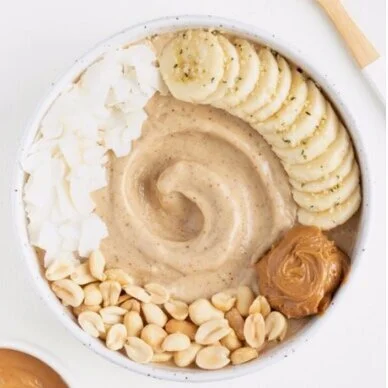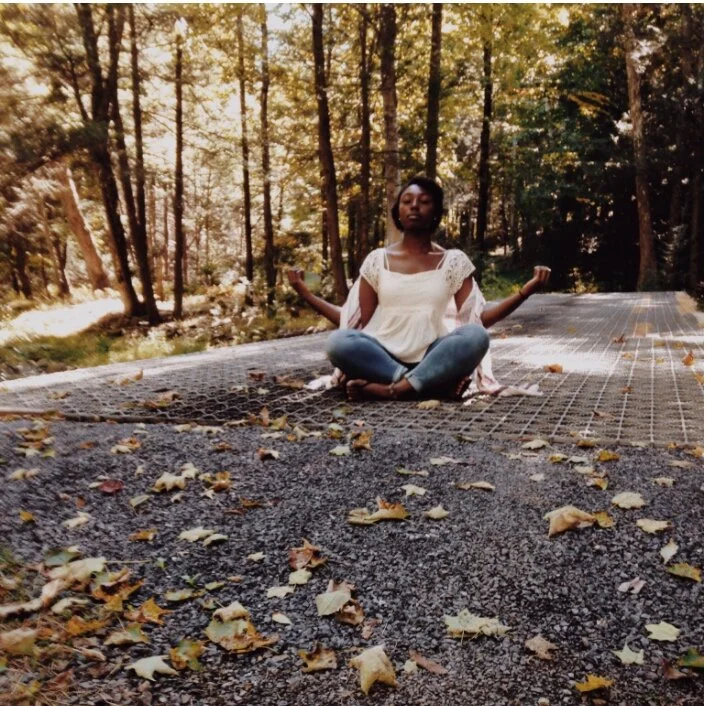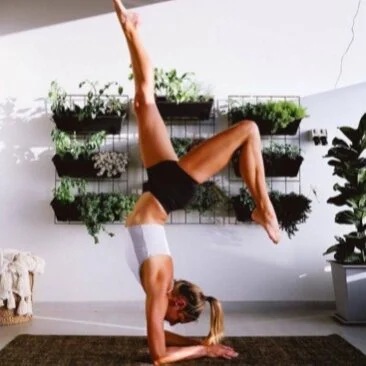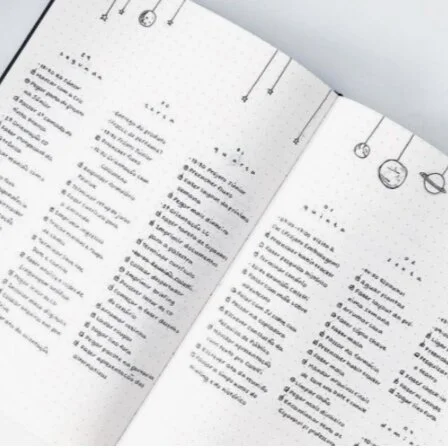Tranquility In Times Of Anxiety
Finding peace of mind in an anxious world.
by CAROLINE DELISLE ★ JUNE 11, 2020
2020 has been a year of tension, uncertainty, and anxiety for the world. It is easy to let stress build up inside of us, especially if you forget to take mindful steps to properly address it. Being strong, loving, and discerning agents of change in the world must start within ourselves and how we care for ourselves and each other. If we do not take the time to fortify our mental health, we will not be able to operate at our fullest potential in everything we do. From intimate situations like being a good friend, to being an effective activist and helping make a positive impact on the world, here are some recommendations for maintaining your mental health in times of distress and anxiety.
Mindful eating:
So much of your ability to think clearly and maintain a peaceful mentality comes from the ways in which you nourish yourself. Oftentimes stress can cause you to lose your appetite. This can be dangerous because your stress could deprive you of proper nourishment at a time when you need it most. Setting aside time to make yourself a healthy and fulfilling meal will ensure that your body has enough energy to deal with the daily stresses. Eating clean and paying attention to your vitamin intake is equally important. Fish such as salmon or tuna are rich in Vitamin D, a nutrient that many of us might be lacking due to minimal sun exposure from quarantining indoors. Additionally, upping your fruit intake will give you more potassium and Vitamin C. Adding spinach to your smoothies and salads is a great source of many different key vitamins and antioxidants. Adding a cup of spinach to your homemade smoothie gives you 56% of your daily Vitamin A needs, 100% of the recommended daily Vitamin K intake, and loads of antioxidants. Get creative and try new recipes! What you eat is more crucial to your mental health than many of us realize. It is so important to nourish your mind and body with what it needs to have the strength to live our healthiest lives. If you’re in need of some inspiration, check out Purely Katie's plant-based recipes!
Credit: Pinterest
Meditation:
The purposeful quieting of your mind and recentering of your thoughts through meditation is a great strategy for minimizing anxiety. Maybe some of you already have practices that you love, and if so, work to carve out time in your everyday schedule for those. We recommend one session in the morning to center yourself for the day, and one at night to quiet your thoughts and help you get a restful night’s sleep. If you are new to meditation, there are plenty of YouTube videos, apps, and podcasts to help you get started! Headspace and COVID Coach are two stellar psychiatrist-recommended apps that can help you practice effective meditation. It’s important to work on quieting your thoughts and removing yourself from situations of anxiety, and this skill can help you better manage stress in the future. Meditation puts you in control of your thoughts and emotions. With practice, it can be a really valuable skill to cope with your anxiety.
Credit: VSCO (@beautifulppl)
Exercise:
Exercising is its own kind of meditation. It can help boost your mood and sort through your thoughts while also strengthening your body and getting a good sweat in. The release of endorphins by working out helps combat feelings of anxiety, sadness, and stress, and ultimately helps you think more clearly! Setting aside 45 minutes to an hour of your day for exercise will help you release built-up tension and manage your stress. Follow along to YouTube videos like those put out by 305 Fitness or Chloe Ting, listen to your favorite playlist on a long run, or take some time to go for a quiet walk. It doesn’t have to be anything extreme or strenuous, but just getting up and moving can help when you’re feeling bogged down by sadness or anxiety.
Credit: Pinterest
Journaling:
Jotting down your thoughts is an incredibly powerful tool to help quell anxiety. By writing out your unfiltered train of thought and getting your feelings down on paper, you are able to spot and compartmentalize the things that may be causing you to feel anxious. The physical act of writing out your thoughts forces you to come to resolutions and find closure, whereas if you keep these thoughts in your head, it is easy to jump from one to the next without resolving anything or fully thinking things through. This also helps in feeling overwhelmed, as it allows you to store your thoughts somewhere other than in your own head! If things you want to remember or tasks you wish to accomplish are written down, you can reference them later to remind yourself, and this eases any unnecessary strain you were experiencing trying to keep track of and remember everything. Journaling can also be a creative outlet! There is tons of inspiration to be found on Pinterest and YouTube about bullet journaling and how to give your entries an artistic aspect to them.
Credit: Pinterest
Art:
Channeling your creativity does not have to center around a beautiful MFA-worthy final product. Instead, gather some paint, colored pencils, or markers and utilize the process of making art to help quiet your mind. The finished piece does not have to be anything exceptional, but the calming process of creating it can be. Whether listening to music or sitting quietly with your piece of paper, find a space to sit down and do something creative. Focusing on creating something can be very cathartic and can help you recenter if you find yourself getting anxious and overwhelmed. Zentangle is an intricate, abstract arrangement of patterns and doodles. There are tutorials on YouTube if you need inspiration, or just start drawing and see what happens. Making something abstract takes away the pressure of trying to make something realistic, and your art becomes less about perfection and more about reflection. You’ll be able to allow yourself to unwind and channel your creative energy into your project, and hopefully find peace in stilling your mind for awhile.
Credit: Pinterest
Talk to a professional:
Perhaps the one positive that came from the pandemic is an increase in psychiatrist accessibility. Social distancing meant finding new remote ways of meeting with patients and helping those in need. It is now easier than ever to get in touch with a therapist, psychiatrist, or other professional with whom you can discuss how you’re feeling. Look into your local counseling centers for Skype or Zoom appointment options and talk with someone who is equipped to help. Isolation can amplify anxieties and fear, so reaching out to others, whether a friend or doctor, can help relieve that burden of facing your stresses alone.
Now more than ever, it is important to stay informed, help those in need, and stand up for what is right. But in order to do this effectively, we need to take care of our mental health and stay tuned in to what our minds and bodies need. Taking moments of rest and reflection throughout your day is crucial in fortifying your mental health for whatever each day brings. In order to fully love and care for others, we must start with ourselves. From there, anything is possible.





